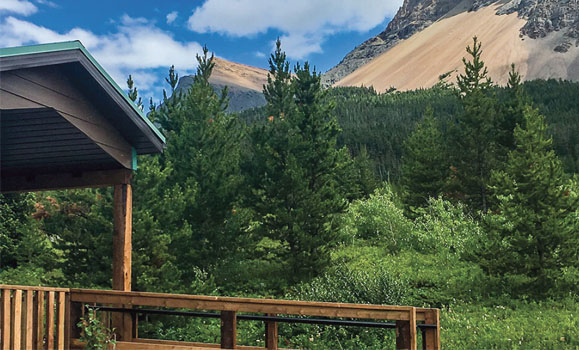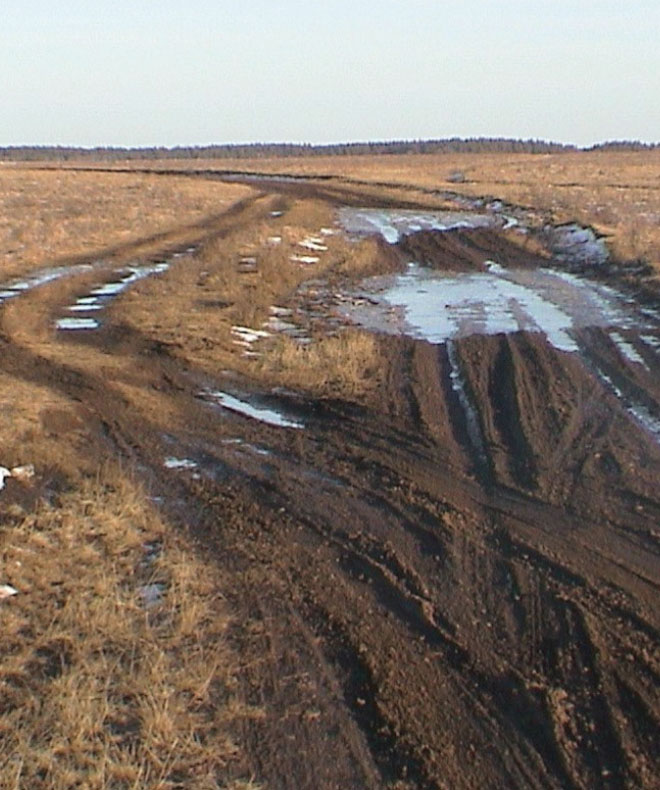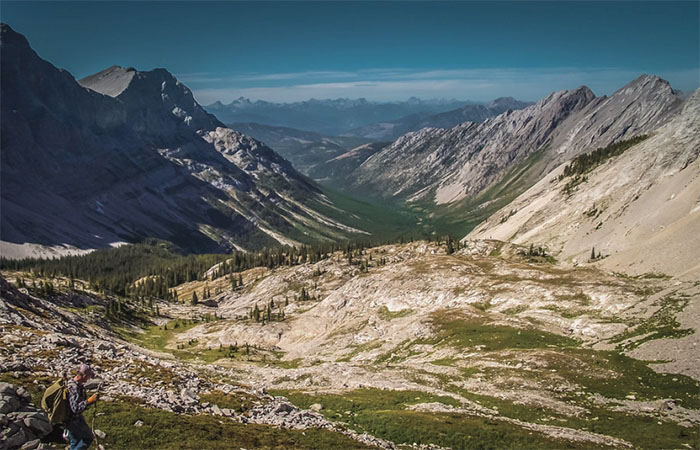For Park information and inquiries please call 403-627-1165.
To report concerns, safety or safety issues to a Conservation Officer call 310-LAND. For emergencies please dial 911. To report poaching please call Report-A-Poacher at 1–800–642–3800.
There are hunting opportunities on more than 85 percent of the land base in Alberta’s Parks system. Hunting is permitted in all Wildland Provincial Parks and some Provincial Parks and Provincial Recreation Areas.
Hunting is a supported activity in Alberta Parks because of its alignment with preserving natural heritage, including traditional land use, providing exceptional recreation opportunities, providing tools for wildlife management, and getting people outside and connecting with nature.
Alberta Parks are enjoyed by a wide range of recreational users year-round and in Provincial Parks and Provincial Recreation Areas, where hunting is allowed, Firearm Discharge Permits are required to address public safety and wildlife management issues as well as to protect sensitive areas and species.

Castle is designated as a Provincial Park and is managed by the Parks Operations Division of Alberta Forestry and Parks. It is located in South West Alberta near Pincher Creek and the parks are part of the Waterton Biosphere Reserve, and share borders with Waterton Glacier International Peace Park to the south, the Crowsnest Pass to the north and the Flathead River Valley of British Columbia to the west. Extensive wildlife corridors link all these unique areas and together they form part of the extraordinary Crown of the Continent ecosystem. Wildlife in this area is habitat for Mountain Goat, Bighorn Sheep, Grizzly Bear, Wolverine, and Elk.
Hikers, cyclists, snowshoers, equestrian users, bikers, school children, community groups, park employees, volunteers and hunters are present at all times of year at Castle Provincial Park. Please be aware of their presence and take appropriate measures to ensure you are being safe and aware at all times.
Access into the park is by a variety of ways including vehicle, horse or foot power.
Off-highway vehicles (OHVs) can be used inside the park on select trails that are designated and marked for OHV use from May 1st to November 30th.
Snowmobiles are only allowed from December 1st to April 30th. Hunters may also use pedal bicycles, skis, and horses to travel around the park. All vehicles registered for highway use are only allowed on highways and secondary highways that access the Provincial Park.
Vehicles must be parked in designated parking areas, or safely off to the side of the road when visitors are taking part in any recreational activity. Horses are to stay on designated trails; please do not traverse off the trails or through the bush. Please be aware there may be adverse conditions that may make conditions poor (e.g. muddy or snowed in).
On highway vehicles (like Jeeps and 4x4s) are NOT permitted on trails. All multi use trails are open to hunting. Motorized travel within rivers and creeks is detrimental and prohibited.
 Please stay on designated trails and roads. Do not drive around holes as it damages the trail and increases the size of the disturbances to the land.
Please stay on designated trails and roads. Do not drive around holes as it damages the trail and increases the size of the disturbances to the land.Be prepared for weather changes including precipitation, unpredictable weather, and fluctuating temperature.
Avalanches are a significant threat to safety and can occur during hunting season. Check Avalanche Canada for reports and updates at avalanche.ca
Be equipped with survival gear – matches, flashlight, warm clothes, compass, extra batteries, flagging tape, food, water. Bear spray is advised and be aware on how use it appropriately
Hunters should use caution and be aware that there are many predators in the area including Grizzly and Black Bears, Coyotes, Cougars, and Wolves. Should it be necessary to leave your animal overnight, be sure to leave human scent around the carcass and drag the offal (organs) away from the carcass as these predators/ scavengers will typically consume those parts first.

Not frequently expected in Castle Provincial Park, but if found, please report any ear tags to Conservation Officers upon discovery. Ear tags may be white with black numbers, or orange stating “DO NOT EAT” followed by a phone number.
The “DO NOT EAT” tag is placed on animals that have been tranquilized; hunters must tag their animal and can still expect to salvage their harvest, but depending on when the animal was tranquilized, the hunter will find out whether the meat is safe to consume (or whether a replacement tag may be issued).
For deer hunters. Please refer to Chronic Wasting Disease – Information for Hunters for information.
For more information on Indigenous hunting and fishing in Alberta please refer to the webpage.
Contact the office at 403–340–7691 for further questions or concerns.
Castle Provincial Park includes WMU 400 which may have different regulations than others. Please contact Alberta Fish and Wildlife for more information.
Castle Provincial Park borders Castle Wildland Provincial Park and private lands. There are numerous campgrounds and recreational activities in the area. Please always be aware of your location and others.